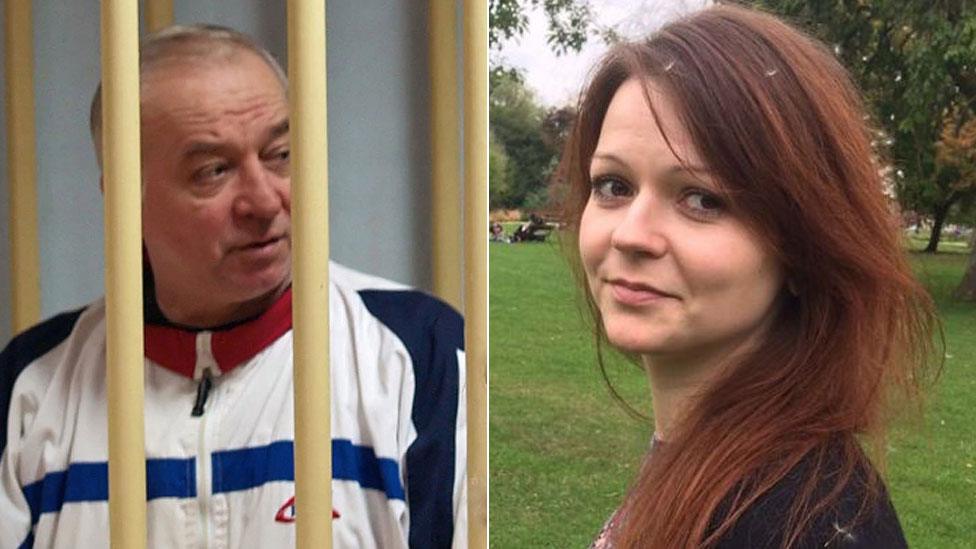Spy's paramedic made 'excellent drug dosing error'
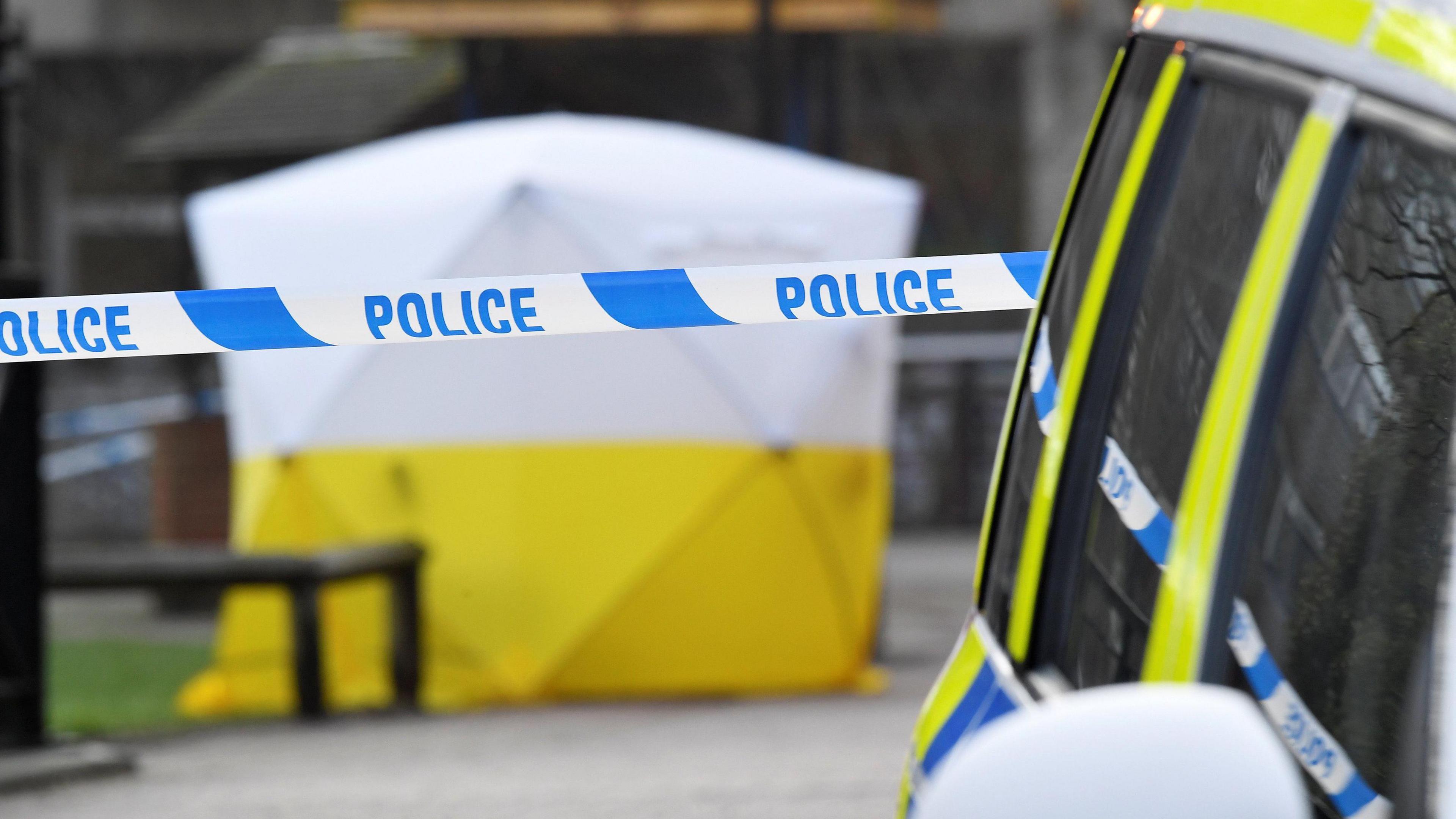
A large part of central Salisbury was placed into lockdown after the poisoning
- Published
A doctor working in a secretive defence laboratory has said a paramedic treating a former Russian spy made "an excellent drug dosing error".
But while the error was "clinically beneficial" to Sergei Skripal, an inquiry heard, it made the process of diagnosing Mr Skripal and his daughter Yulia with Novichok poisoning "incredibly difficult".
The identity of the doctor, who works at the Defence Science and Technology Laboratory (DSTL) in Porton Down, Wiltshire, has not been made public and is being referred to by the Dawn Sturgess Inquiry only by the cypher FT49.
Mr and Ms Skripal were rushed to hospital on 4 March 2018 after being found unconscious on a bench in central Salisbury.
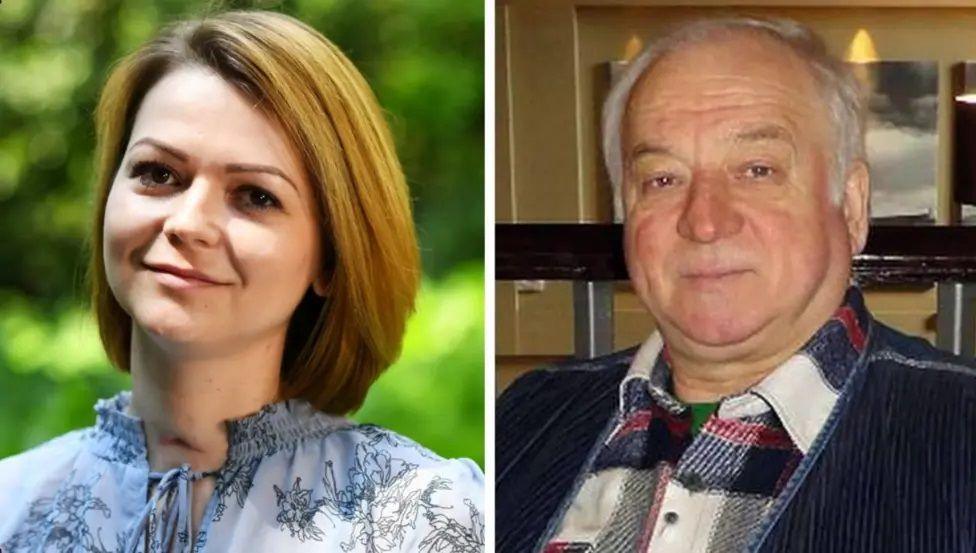
The Skripals spent weeks in hospital recovering after being poisoned
The evidence was heard during the second week of an inquiry into the death of Dawn Sturgess, 44, from Wiltshire, who died from Novichok poisoning four months after the incident involving the Skripals.
The inquiry, which opened at Salisbury's Guildhall on 14 October and is now being held at the International Dispute Resolution Centre in London, is not sitting today.
Over the past two days the inquiry has heard evidence from the intensive care doctors in charge of caring for Mr and Ms Skripal and the first paramedic on the scene, while the head of the Metropolitan Police's counter terrorism command also contributing earlier in the week.
The final witness to be heard this week was the anonymous FT49 who gave evidence behind closed doors due to the classified nature of his work.
During his evidence FT49 discussed details of a paramedic's response that had been submitted to the inquiry in written evidence earlier in the week.
Wrong drug given
Paramedic Karl Bullpitt, who attended to Mr Skripal at the scene, described in writing how he had initially picked up naloxone - a drug used to treat opioid overdose - intending to administer it to the former spy.
However Mr Skripal vomited before he could give him the drug, and in a rush to clear his airways the paramedic knocked over the drugs bag inside the ambulance.
Once he had finished clearing his airway he picked up the vials he believed to be naloxone and administered it with a "good effect" Mr Bullpitt said, with Mr Skripal becoming "slightly more responsive".
This impact, he added, "bolstered" suspicions Mr Skripal had suffered an overdose.
But when Mr Bullpitt returned to the ambulance station later that day and went to restock the drugs bag, he realised there was no naloxone missing - meaning he must have administered a different drug.
He realised then he had instead given Mr Skripal atropine, which is carried to treat the symptoms of a low heart rate.
'Excellent' error
Discussing this in his evidence, FT49 said: "The inadvertent administration of atropine, yes, that was an excellent drug dosing error to make, and that was again clinically beneficial in maintaining Sergei’s heart rate.
"However what that does do is make your clinical diagnosis at presentation when you think about toxidromes incredibly difficult."
The inquiry heard yesterday from the first two consultants to treat Mr and Ms Skripal, including detailed information about how difficult it had been in the first hours and days to ascertain what had happened to the pair.
Dr James Haslam, a consultant in anaesthesia and intensive care medicine at Salisbury District Hospital told the inquiry on Wednesday that the Skripals' symptoms were "too extreme" for "a normal presentation for recreational drug overdoses".
He had begun to suspect a possible nerve agent being involved the day after they were admitted to hospital, after recognising their symptoms from material he had studied for an exam years earlier.
The inquiry is due to begin again next week, starting with evidence from Wiltshire Police detectives and continuing with further medical evidence.

BBC Sounds: Salisbury Poisonings
Keep up to date with the latest from the inquiry with our podcast.
Listen to the episode on BBC Sounds.

Follow BBC Wiltshire on Facebook, external, X, external and Instagram, external. Send your story ideas to us on email or via WhatsApp on 0800 313 4630.
See also
- Published11 October 2024
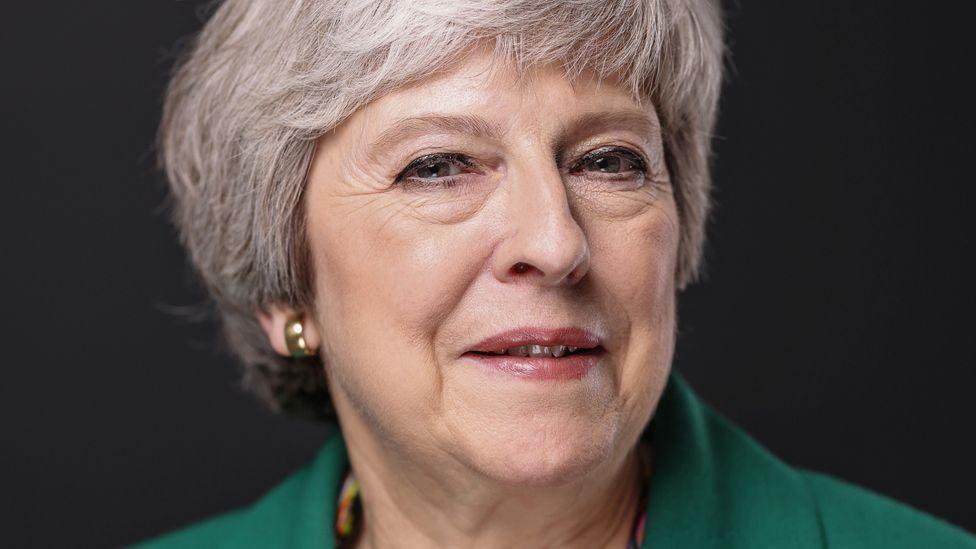
- Published30 July 2018
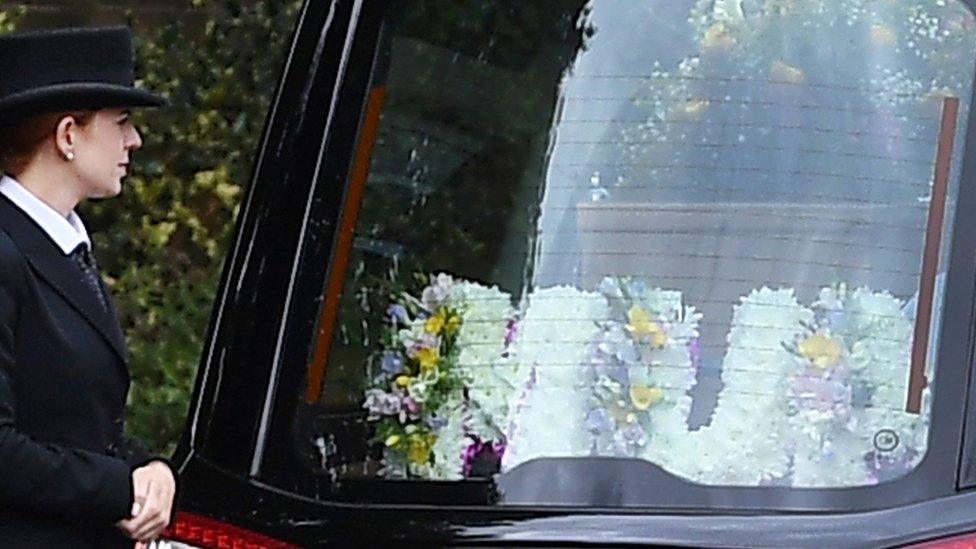
- Published4 March 2020
